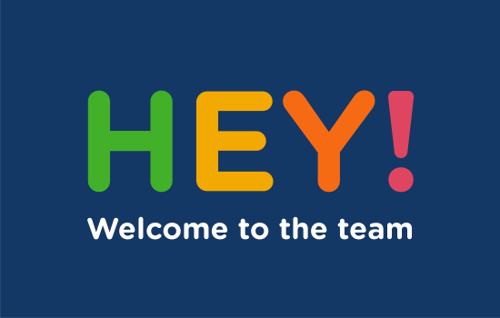What comes first, experience or engagement?
We’ve all heard the question, ‘what comes first, the chicken or the egg?’ Despite what viewpoint you might have, we know that you can’t have an egg without a chicken, and you can’t have a chicken without an egg.
This is the same way I look at the link between employee experience and employee engagement – think of it as the HR version of the chicken and the egg. You can’t improve the employee experience without caring about how you engage your employees, and you can’t successfully engage your employees if you don’t work to improve your employee experience.
There needs to stop being a battle between 'experience' and 'engagement' and which is more important, because they are both critically important not only for your people, but for your business as it continues to grow and evolve.
 From the time a candidate submits an application for an open position, to the time they are leaving your company for a new opportunity, and every interaction in between, it is up to HR and business leaders to create environments where that person is motivated and engaged. We know that globally, significant movement is predicted in the job market, with 42% of employees surveyed in our recent research published around the 2021 Talent War reporting they are either currently looking for a new employer, or will be this year.
From the time a candidate submits an application for an open position, to the time they are leaving your company for a new opportunity, and every interaction in between, it is up to HR and business leaders to create environments where that person is motivated and engaged. We know that globally, significant movement is predicted in the job market, with 42% of employees surveyed in our recent research published around the 2021 Talent War reporting they are either currently looking for a new employer, or will be this year.
Today’s HR leaders don’t look at recruitment, onboarding, pay and benefits, recognition and reward, internal communications, management, learning and development and leadership in isolation. They create a holistic Employee Value Proposition that fuels engagement and creates a culture that becomes a differentiator for their organisation. Leaders today agree, with 83% of the HR leaders we surveyed understanding that they’d have to ‘adapt what [they] offer to employees as a company to attract and retain the best talent due to COVID-19.’ Employees notice what their employers deliver on, and measure your business against their own expectations.
And that means delivering an exceptional experience throughout every day, hour and minute of the employee journey, enabled by the right combination of tools to engage and motivate them so they have an incredible journey with your company.
 By focussing on engagement through the lens of the employee experience, you can see critical touchpoints to engage employees – such as sending them a Welcome to the Team eCard their very first day, centralising their onboarding and benefits documentation in one platform for them to easily keep track of what your company offers, and making sure they feel connected to the business day and in and day out with strategic communications no matter where they’re working. You can also use surveys as additional pulse checks throughout the employee experience to get a full picture of how your employees are feeling.
By focussing on engagement through the lens of the employee experience, you can see critical touchpoints to engage employees – such as sending them a Welcome to the Team eCard their very first day, centralising their onboarding and benefits documentation in one platform for them to easily keep track of what your company offers, and making sure they feel connected to the business day and in and day out with strategic communications no matter where they’re working. You can also use surveys as additional pulse checks throughout the employee experience to get a full picture of how your employees are feeling.
As your employee may start to look at other roles in or outside of your business, it’s important to remind them why they started with you in the first place, and how their day-to-day role connects with your organisation’s mission and purpose – you can tap into key moments of their own journey to shine a spotlight on the work that they’re doing, and prove to them that it matters.
Of course, if they do decide to leave, that’s OK, too. In today’s market, you need to make sure the development of your teams is first and foremost, which can also mean getting someone ready for their next job.
 When you look at all of the inputs of the employee experience, the outcome that all companies should strive for is a more engaged workforce. Think of the experience as the administrative side of HR, and engagement as how they feel and what you as a business can do to impact your employees. We know that engaged employees are more aligned with the mission, purpose and values of the company, and that creating an environment where it’s easier to attract, engage and retain top talent will ultimately lead to better business results.
When you look at all of the inputs of the employee experience, the outcome that all companies should strive for is a more engaged workforce. Think of the experience as the administrative side of HR, and engagement as how they feel and what you as a business can do to impact your employees. We know that engaged employees are more aligned with the mission, purpose and values of the company, and that creating an environment where it’s easier to attract, engage and retain top talent will ultimately lead to better business results.
Employee experience is not a one-size-fits-all solution – we know that everyone and every company has a different employee life cycle – but there are certain levers we as HR leaders can pull to make that experience an amazing one. Supporting your people strategy with tools that will improve not only the employee experience, but increase employee engagement will help define your employees’ unique experiences with their company, and ultimately, make their world a better place to work.

 Robert Hicks
Robert Hicks



